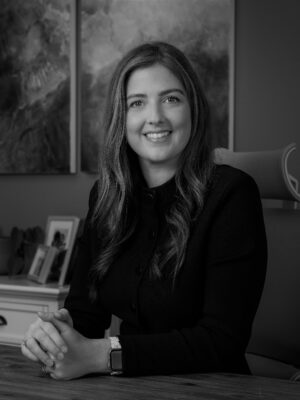A 30 year old solemn form case has finally been decided.
The court was required to consider whether the testatrix (who died in 1992) had capacity to make a Will in 1990 in light of proceedings brought against the testatrix’s estate by her eldest daughter who did not benefit under the 1990 Will, but received the entire estate under an earlier Will.
An Order to Administer the 1990 Will was obtained by The Public Trustee of Queensland in 1992 after the named executor had renounced. However, in 1993, the eldest daughter commenced proceedings seeking revocation of the Order to Administer the 1990 Will and that probate of the 1986 Will be granted instead. Cullinane J ordered that the Order to Administer the 1990 Will be returned to the Registry, and that the eldest daughter be the defendant in solemn form proceedings to be commenced by The Public Trustee of Queensland as administrator of the estate of the testatrix. Proceedings were subsequently commenced but the eldest daughter did not appear or defend the proceedings. She died in 2013, and the proceedings initially commenced by her had not been progressed since 1993. It was not known who the legal personal representative/s or the beneficiaries of the eldest daughter’s estate were.
The matter proceeded to trial in Townsville on 15 and 16 June 2021, with The Public Trustee of Queensland as administrator of the estate of the testatrix as the Applicant, and the numerous actual or potential beneficiaries of the testatrix’s estate (noting that it was not known who might benefit under the earlier Will given it gifted the estate to the eldest daughter who had since died and it was not known who the beneficiaries of her estate were) as the variously named Respondents. Notably, the First Named Second Respondent was The Public Trustee in his capacity as administrator of the estate of one of the testatrix’s other daughters, who had survived the deceased but died in 2004, and was a one-third beneficiary under the 1990 Will.
By order of the Court in March 2021, the First Named Second Respondent was to take carriage of the trial, and the Applicant was granted leave to withdraw from the proceedings subject to being heard on orders made other than those sought by the Applicant and agreed to by the First Named Second Respondent. The Applicant also sought orders in the alternative (pronouncing in favour of the earlier Will) with which the First Named Second Respondent did not agree.
Aside from evidence provided by the testator’s surviving children and grandchildren as to their respective recollections of the testatrix’s capacity or lack thereof, there was:
- some medical evidence available before the court provided by way of an affidavit filed in 1993 by the testatrix’s GP. The effect of this evidence was that the testatrix was suffering from dementia and did not have capacity to make the 1990 Will. However, the doctor died prior to trial so his evidence could not be tested, and his medical records (on which his affidavit opinion was based) were not in evidence and could not be found despite extensive searches.
- oral and affidavit evidence of the two persons who witnessed the 1990 Will, both of whom attested to the testatrix’s likely capacity at the time she made the 1990 Will.
Ultimately, the Court pronounced for the full force and validity of the 1990 Will, having been satisfied by the evidence of the two witnesses.
Dr Katrina Kluss acted for the successful First Named Second Respondent.
You can ready the full Judgment here.


